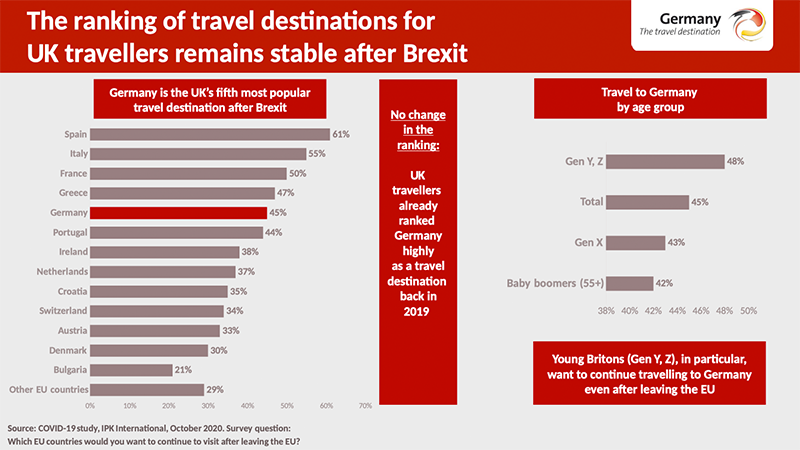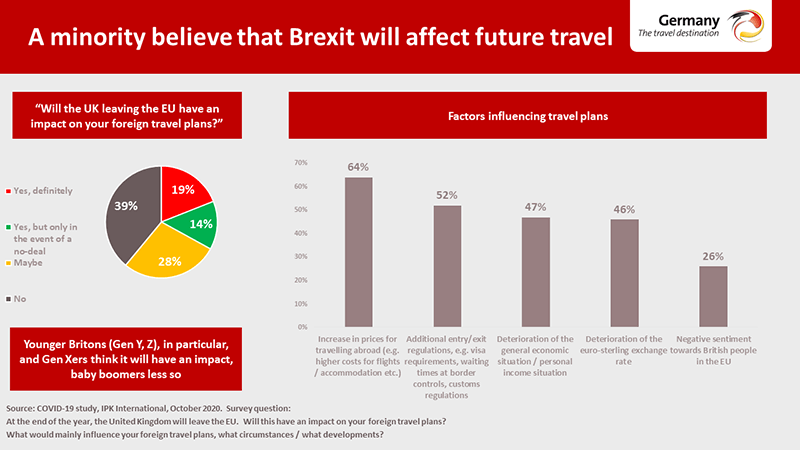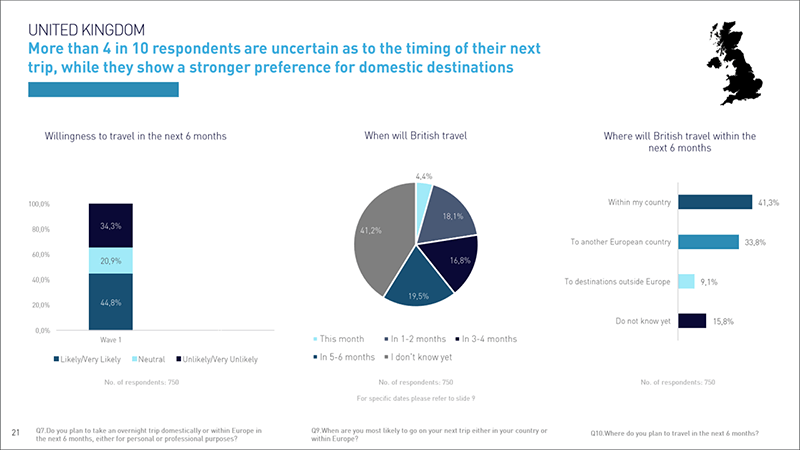Germany and United Kingdom
Germany and the UK have significant historical, economic and cultural ties. For many years, we have been the UK’s largest European trade partner and an important ally in international cooperation and in combating climate change, but the ties that bind us go back even further. There are the Ernestine roots of the British royal family, for example, the significant influence of German Baroque on English music of the early modern period, and the influence of the British Enlightenment on German philosophers. The close ties between our two nations have survived two world wars, as Prince Charles, heir apparent to the British throne, reminded us during his recent visit to Germany to attend a remembrance ceremony. But since the Brexit vote and the difficult negotiations with the EU on the future relationship, there has been uncertainty about our common future; this applies especially to Germany as a tourism destination.
The German inbound tourism industry is asking itself what impact Brexit will have on the travel patterns of the British, and what the consequences for the sector will be. But market data and a recent study conducted by IPK International on behalf of the GNTB give cause for hope. The UK will remain a key source market for inbound travel to Germany after Brexit, and there are three reasons why.
First, the UK is traditionally one of the top five source markets for inbound tourism to Germany. At the start of the decade, the number of overnight stays by visitors from the UK to Germany stood at 4.2 million, and continued to rise to 5.9 million even after the Brexit vote; it wasn’t until 2019 that we saw a slight decline, to 5.6 million overnight stays. According to IPK International, Germany has retained its position as a popular destination for British travellers since the Brexit vote. Another positive aspect is that younger generations, in particular, who voted remain by a large majority in 2016, do not want to be deprived of their holidays in Germany even after leaving the EU.

Second, only a fifth of Britons believe that Brexit will influence their plans to travel abroad. Almost 40 per cent are sticking to their usual travel habits with typical British equanimity, despite the possibility of higher accommodation and flight costs or a longer wait at passport control. A further 14 per cent are waiting to see whether a deal can be reached, a scenario which has become more far likely after a series of upheavals and changes of personnel in the UK government.

Third, the majority of Britons stay in Europe on their travels. According to a recent travel sentiment study by the European Travel Commission (ETC), one third of the UK’s inhabitants who intend to travel want to visit another European country in the next six months, whereas less than 10 per cent want to travel to non-European destinations. This is very positive news from one of Europe’s largest markets for outbound travel, which ranks among the world’s top five source markets for travel and spending thanks to 78.1 million international trips and expenditure of €90.6 billion in 2019.
The majority of Britons stay in Europe on their travels – or in their own country

Whether Brexit will happen with or without a deal, we have good cause to be optimistic about travel to Germany from the UK in the 2020s. Communicating this special relationship and our shared cultural history as a means of providing inspiration for travel is both a challenge and an opportunity, especially in these difficult times. I firmly believe that tourism between the UK and Germany will continue to be an important factor in our mutual understanding and our future prosperity.
Stay safe, and stay in touch
Petra Hedorfer